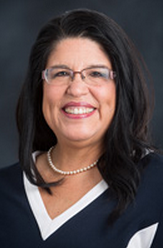How RTD’s Suburban Politics Hamper Denver’s Investment in Transit
For the most part, Regional Transportation District’s board members are politicians, not transportation planners. And when they have to make important decisions about transit, it shows. Those decisions aren’t always based on what’s best for transit riders or the region.


The RTD Board’s leadership has produced a system where rail lines cater to suburbanites and exurbanites more than Denver residents. But when it comes time to make sure the region gets some value out of its investment, the same politicians who wanted those far-flung rail stations are no help.
At Tuesday’s RTD Board of Directors meeting, consultants presented the board with a critique of the agency’s approach to transit-oriented development, or TOD. Transit works most effectively and is useful to more people when it is surrounded by compact, walkable development. Naturally, RTD staffers — professional transportation planners — want to make this happen. If people can live near transit or get to it easily, they’ll use it, which you would think RTD’s board members would want.
But suburban politicians aren’t interested in a transit system that serves a large number of people.
“I don’t think people envisioned high-density development when they approved the FasTracks plan at all,” said Director Natalie Menten, who represents Lakewood, Wheat Ridge, and Golden. Menten used to own an auto repair garage and now works in agriculture. “That’s a line that goes right through residential neighborhoods and those are people that in some cases maybe they want to see property improvements, maybe some changes, but there are a lot of people with large homesteads that have been there for a long time. They don’t want to move. They don’t want a seven story building next to them.
“I moved to a single-family residential area. I am not interested — and I feel that most of my constituents feel the same way. I know in my area, no, they were not looking to see high density.”
Director Tina Francone, who is a firearms instructor and owns a software company, represents more rural areas west of Menten’s district. “We live where we live because we choose to live there, in the hinterlands, for single family homes, for large lots, those types of things, so my constituency is sensitive to those issues,” she said.
If a suburban jurisdiction doesn’t want transit-oriented development, that’s its prerogative (even if it’s a bad long-term decision). But that means ridership and fare revenue in those parts of the region will be lower than optimal, and the subsidies to operate service to those suburbs will be higher. Denver residents, who contributed an outsized amount to FasTracks via increased sales taxes, should realize that their partners in this venture aren’t holding up their end of the bargain.


